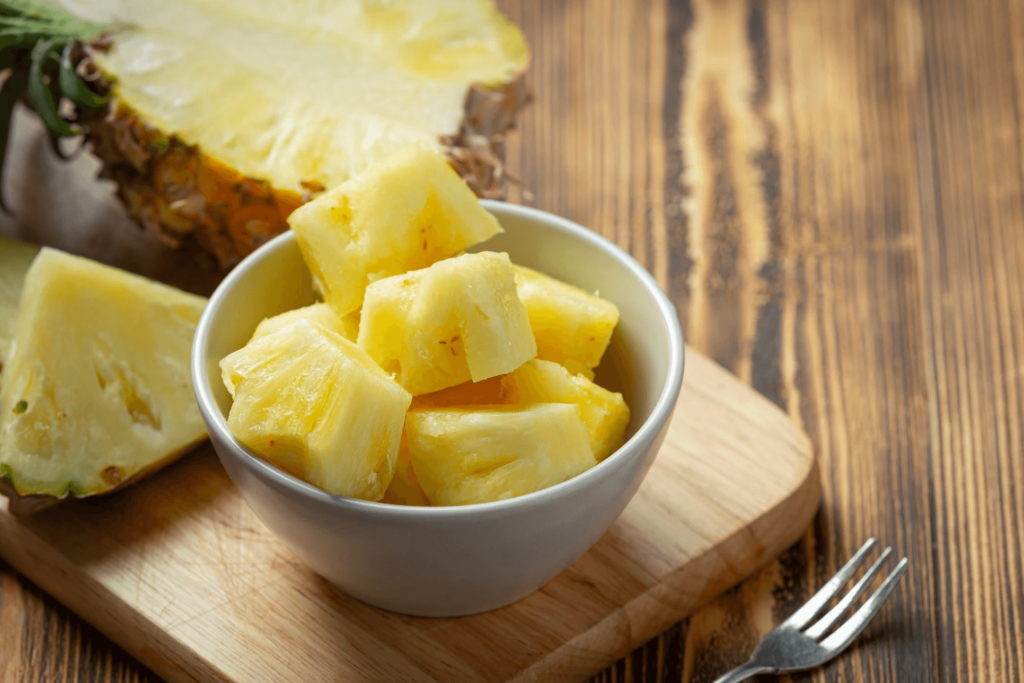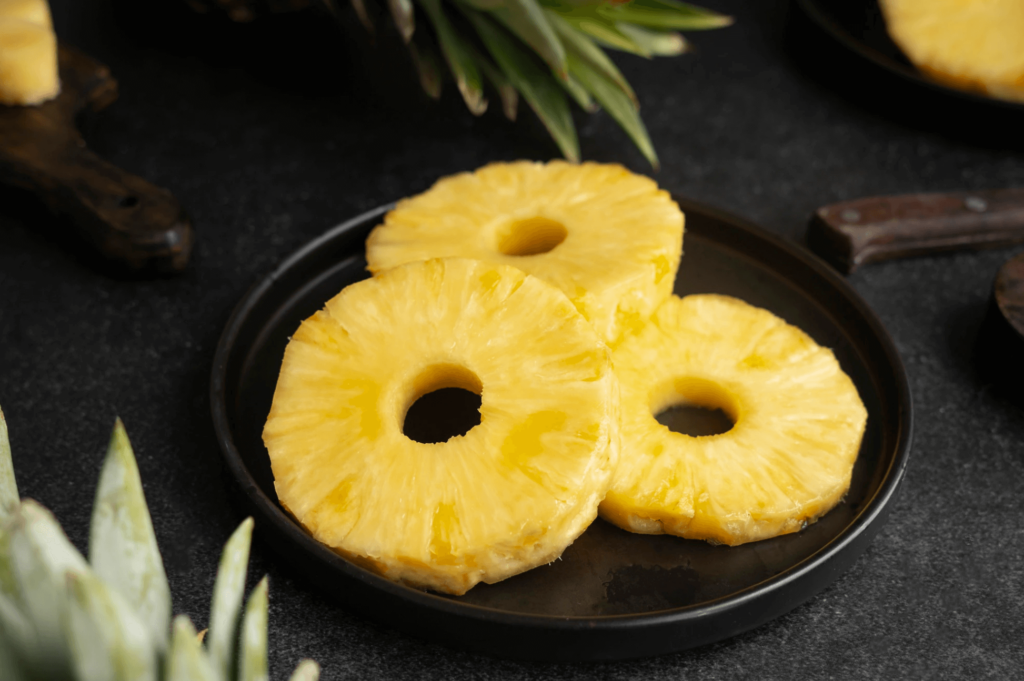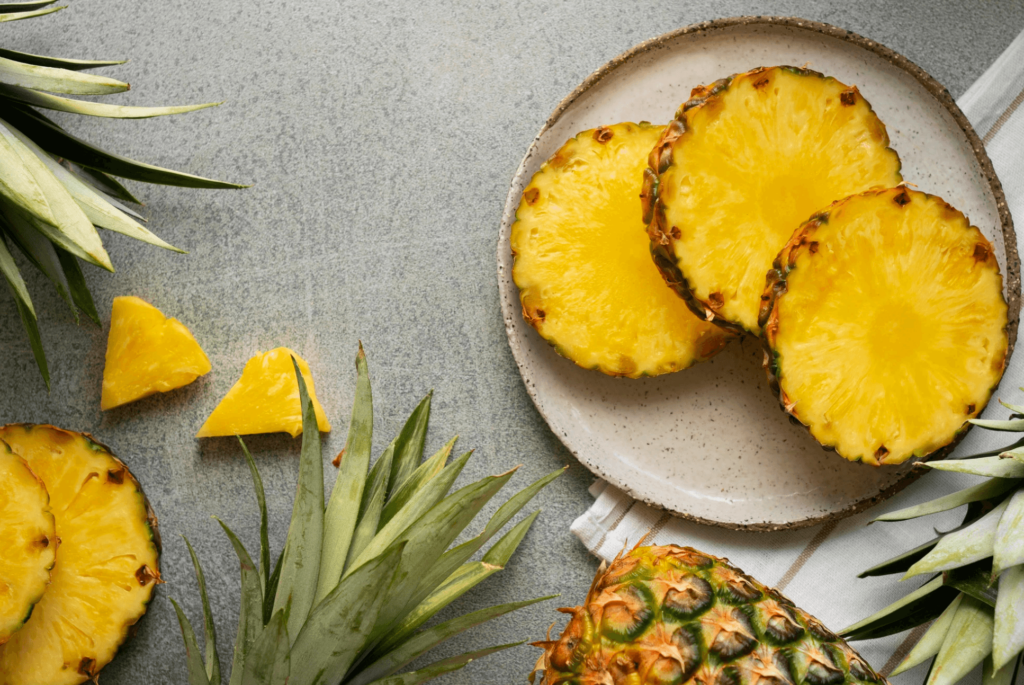
Does Eating Pineapple Make Sperm Taste Different?
There’s a widely circulated belief, almost a myth, that eating certain foods can alter the taste of bodily fluids. One of the most popular claims revolves around the consumption of pineapple and its supposed effects on semen taste. But where did this belief originate from, and is there any scientific grounding to it?
The Myth Surrounding Pineapple and Semen Taste
We’ve all heard it, perhaps in hushed conversations or as a fleeting mention in a magazine article. The idea is simple: consuming pineapple or its juice can lead to a sweeter taste in semen. But is this just a taboo topic based on anecdotal evidence, or is there science backing it?
Did you know?
The theory behind this is linked to the natural sugars and enzymes present in the pineapple, which might influence the taste of certain bodily fluids.
Physiology Behind Taste Changes
Our body is a complex machine, and what we consume does play a role in determining the composition and taste of our bodily fluids. Foods with strong flavors, like asparagus or coffee, have been reported to alter the smell and taste of urine. But does the same logic apply to semen?
- Understanding the Basics: Semen primarily consists of sperm and seminal fluid. The taste of this fluid can be influenced by various factors, including diet, metabolic diseases, and certain medications.
- The Role of Diet: Just as certain foods can cause strong-smelling urine, they can also change the taste of semen. Foods high in sulfur, such as broccoli, can lead to a more bitter taste.
To illustrate the various factors affecting semen taste, let’s look at a table summarizing the primary contributors:
| Factor | Influence on Taste | Examples |
|---|---|---|
| Diet | Direct | Pineapple, broccoli |
| Medications | Indirect | Antibiotics |
| Metabolic Diseases | Indirect | Diabetes |
| Hydration Level | Variable | More water = diluted taste |
In conclusion, while the pineapple and semen taste theory remains largely anecdotal, it’s undeniable that diet plays a significant role in determining the taste of our bodily fluids. So, the next time someone brings up the topic, remember, there’s a bit of science to back it up!
Dissecting Dietary Influence
While pineapple has been the center of attention, it’s essential to acknowledge that our diet’s broader scope can play a role in the taste of our bodily fluids. Let’s delve deeper into how and why.
Foods and Their Impacts
It’s not just about fruits. Dietary influence encompasses a wide range of consumables. Here’s a look at some common foods and their potential effects:
- Sugary Foods: Foods high in natural sugars, like fruits, are believed to give a sweeter taste. This includes not just pineapples but also apples and mangoes.
- Spices: Consumption of spices, especially in large quantities, can give a sharp or pungent taste. Think of strong flavors like garlic and cumin.
- Red Meat and Dairy: These might result in a more salty and bitter taste, according to some anecdotes.
- Vegetables: Leafy greens can lead to a milder taste, while some like asparagus can contribute to a strong, distinct flavor.
So, what’s the takeaway? Balance is crucial. An extremely sugary diet might not necessarily result in a “sweet” outcome. It’s about a balanced intake.
Beverages in the Mix
Let’s not forget the liquids! Beverages, from your morning coffee to that glass of wine in the evening, can also play a role.
- Coffee: It’s known to lead to a bitter taste due to its strong, aromatic compounds.
- Alcohol: Especially strong spirits might lead to a sharp taste. However, sweet cocktails might have a different effect.
- Water: Hydration is key! Water helps dilute and flush out toxins, potentially leading to a milder taste.
The Science Behind the Taste
While there’s plenty of anecdotal evidence floating around, what does science have to say?
Research in this domain is, understandably, limited. However, a few studies suggest that while diet can influence the taste of semen, the change might not be as dramatic as pop culture suggests. It’s a subtle shift, more like a nudge in a certain direction rather than a complete overhaul.
To understand this better, let’s consider the following breakdown:
| Compound in Semen | Primary Taste Influence | Dietary Impact |
|---|---|---|
| Fructose | Sweetness | Direct from sugary foods |
| Amino Acids | Salty/Bitter | Proteins & dairy |
| Uric Acid & Urea | Sharpness | General metabolism |

Beyond Diet: Other Influential Factors
While diet is a significant player, several other factors can influence semen taste. From lifestyle choices to underlying health conditions, the taste can vary from one individual to another.
Medications and Supplements
Certain medications, especially those with sulfur, can lead to a distinct taste. Even the multivitamins you take daily might play a role!
Smoking and Drug Use
Nicotine from cigarettes and other substances can lead to a more bitter taste. It’s not just about the taste; these habits come with a plethora of health risks.
Underlying Health Conditions
Conditions like infections can lead to a sharp, distinct taste. If someone notices a sudden change, it’s always best to consult with a healthcare professional.
The Myth and Reality Intersection
One can’t talk about the influence of pineapple on semen taste without addressing the myriad of myths surrounding it. Let’s dissect where reality ends and myths begin.
Pop Culture and Pineapple
Movies, TV shows, and even popular songs have occasionally hinted at or openly discussed the purported effects of pineapple on bodily fluids. It’s important to understand that while pop culture may introduce topics to the general public, they aren’t always accurate.
Fact Check: Most of these references are anecdotal. Scientific evidence supporting the claim is sparse, and the effects aren’t as pronounced as your favorite sitcom might suggest.
The Placebo Effect
Sometimes, believing something has a particular effect can cause one to perceive changes, even if none exist. The mind is powerful. When expecting a sweeter taste post consuming pineapple, one might just believe it has occurred, thanks to the placebo effect.
Individual Variability: One Size Doesn’t Fit All
Bodies are unique. What works for one might not for another. This principle applies to the pineapple debate too. Individual diet, metabolism, genetics, and more can influence taste. Thus, while some might notice a difference, others might find no change at all.
Making Sense of the Science
While anecdotal evidence is abundant, scientific studies on this topic are limited. However, a few brave souls in the scientific community have ventured into this domain.
The Composition Angle
Semen isn’t just sperm. It’s a complex fluid with multiple components. Understanding its composition can shed light on the taste aspect.
- Fructose: Provides energy to sperm and contributes to sweetness.
- Ascorbic Acid: An antioxidant.
- Zinc and Enzymes: Protects the sperm.
- Various Salts: Gives the salty taste.
Insight: The composition suggests that a sweet component exists. However, can pineapple consumption significantly amplify it? The jury’s still out.
Limited Research, Varied Conclusions
A handful of studies have looked into the diet-semen taste connection. Most agree that diet can influence taste to an extent. However, the degree and specifics vary. Strong flavors like garlic might have a more pronounced effect, while subtle changes like the pineapple’s sweetness might be harder to discern.
Broadening the Horizon: Beyond Pineapple
While pineapple steals the limelight, other dietary components can influence semen taste. Here’s a quick look:
- Cranberries: Just like pineapple, these are believed to sweeten the taste.
- Broccoli & Brussels Sprouts: Might make it more bitter.
- Cinnamon & Nutmeg: Alleged to sweeten the taste.
- Dairy: Some believe it can make it saltier.
Pro Tip: A well-balanced diet, rich in fruits and vegetables, can not only potentially improve taste but also boost overall health.
The Role of Hydration
Hydration is a critical aspect of overall health, and it doesn’t come as a surprise that it can also influence the taste and consistency of semen.
Why Hydration Matters
Water is the primary component of semen, making up about 80% of its composition. As such, staying hydrated ensures that the body can produce semen with a texture and taste that’s within the normal range.
- Fact: A well-hydrated body can lead to semen that’s more fluid. In contrast, dehydration can result in thicker semen, which might concentrate its taste.
The Direct Correlation
When one consumes ample water, the body’s systems, including reproductive systems, function optimally. The toxins get flushed out more efficiently, possibly leading to milder tasting semen.
Expert Tip: Drinking at least 8 glasses of water daily is generally recommended. However, individual needs may vary based on factors like physical activity and climate.
Other Dietary Influences
While pineapple is often the fruit under the spotlight, several other dietary components can influence the taste of semen, either positively or negatively.
Bitter Offenders
Certain foods are notorious for potentially giving semen a more bitter taste. Some of them include:
- Coffee
- Alcohol, especially beer
- Certain types of fish
- Asparagus
Sweet Saviors
On the flip side, some foods might lend a sweeter note to semen:
- Celery
- Parsley
- Wheatgrass
- Cinnamon

The Global Perspective: Cultural Views and Anecdotes
Different cultures have varied beliefs and anecdotes related to this topic. While not scientifically proven, they provide an interesting lens to view the subject.
Ancient Cultures and Semen Taste
Many ancient cultures, including Chinese and Indian Ayurvedic traditions, believed in the direct correlation between food consumption and bodily secretions, including semen.
- Quote: “You are what you eat” is a popular saying that captures this sentiment.
Modern-Day Anecdotes
Today, many people, especially within online communities, share their personal experiences and experiments regarding the impact of diet on semen taste. While these can be interesting to read, it’s essential to approach them with a pinch of salt.
Scientific Studies and Their Conclusions
While many claims circulate the internet, it’s essential to understand the scientific perspective on the matter of diet influencing semen taste.
The Limited Research Available
There’s a significant lack of scientific studies specifically examining the correlation between food intake and the taste of semen. Most conclusions are derived from broader research on diet and its impact on body secretions.
- Observation: General bodily secretions, including sweat and urine, can be influenced by certain foods. For instance, consuming asparagus or coffee can alter the smell of urine.
Medical Community’s Stance
Most medical professionals agree that while diet can influence the taste of semen, the change might be subtle. The body’s primary function is to maintain a stable internal environment, which means drastic changes based on diet alone are unlikely.
Myth vs. Reality
In the quest to decipher the pineapple-semen conundrum, it’s crucial to separate myths from realities.
The Pineapple Myth
There’s a widespread belief that consuming large amounts of pineapple can make semen taste significantly sweeter. While pineapple does contain natural sugars and enzymes, the direct impact on semen might be exaggerated.
- Fact Check: It’s important to note that the body metabolizes food in complex ways. Simply consuming pineapple might not guarantee immediate or significant changes.
Other Myths
Several other myths surround this topic. Some believe that vegetarian diets lead to better-tasting semen compared to meat-heavy diets. Again, individual experiences vary, and broad generalizations can be misleading.
The Bigger Picture: Overall Health
Beyond the taste of semen, diet plays a pivotal role in reproductive health. Consuming a balanced diet ensures optimal sperm production and function.
Nutrients Vital for Reproductive Health
Certain nutrients are essential for maintaining reproductive health:
- Zinc: Crucial for sperm production and motility.
- Folic Acid: Enhances the creation of new DNA.
- Vitamin C: Protects sperm from oxidative stress.
The Impact of Harmful Substances
Substances such as tobacco, excessive alcohol, and illicit drugs can negatively impact reproductive health. They might also influence the taste and smell of semen.
- Warning: Regular and excessive consumption of such substances can lead to fertility issues and other health complications.





